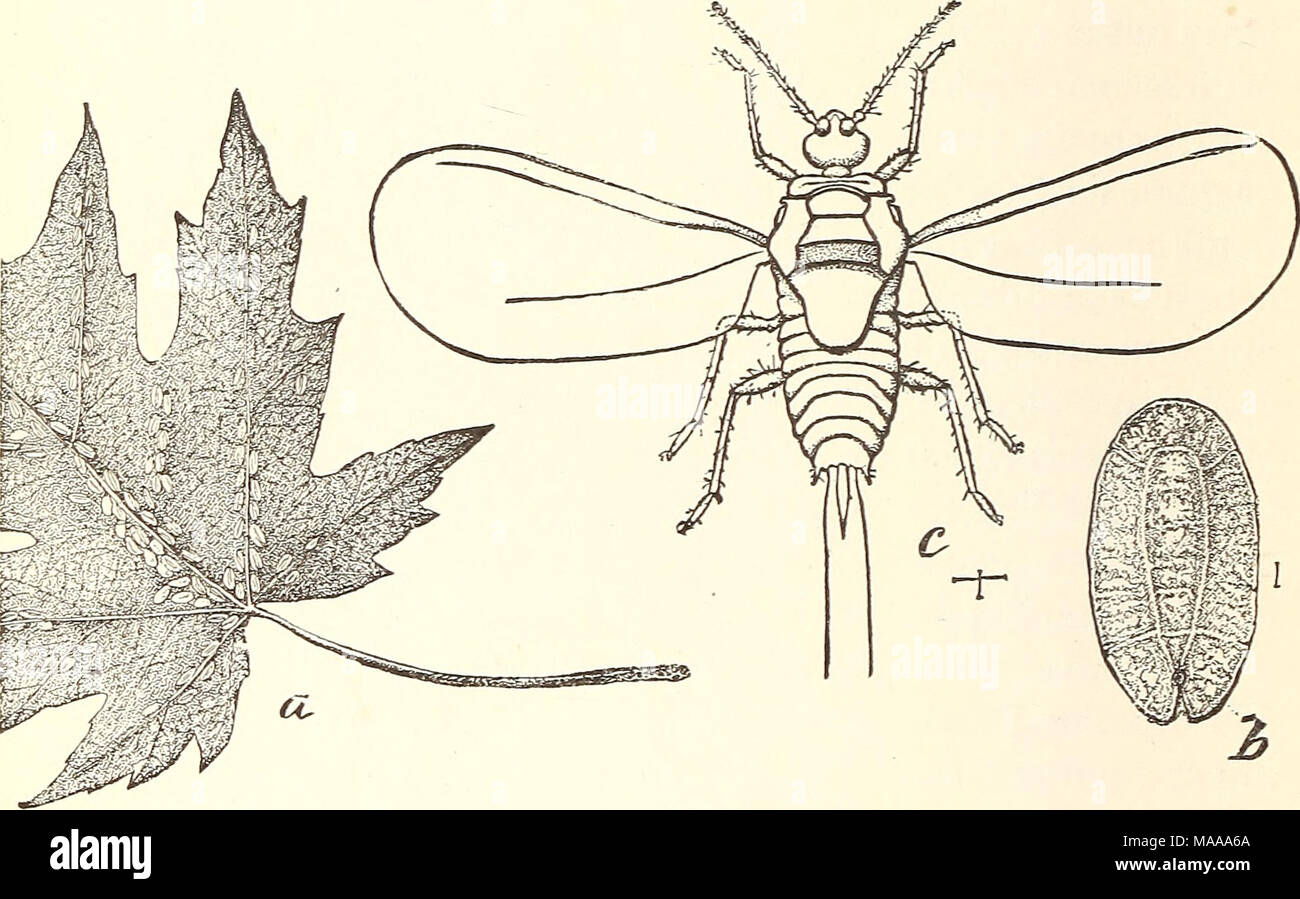. Economic entomology for the farmer.. . Cottony maple scale.—c, leaf covered with scales ; 5, male scale ; c, adult male. We have other species of similar character in which there is no cottony mass protecting the eggs, but the life history is essen- tially the same. These '' soft scales'' mostly belong to the genus Lecanium, and are much more common southwardly and in con- servatories. Citrus fruits and olives are especially subject to soft-scale attack, and the '' black scale,'' Leca7iium olecz, is in California the most troublesome of all and the most injurious. In the genus Ceroplastes th

Image details
Contributor:
The Bookworm Collection / Alamy Stock PhotoImage ID:
MAAA6AFile size:
14.3 MB (557.3 KB Compressed download)Releases:
Model - no | Property - noDo I need a release?Dimensions:
2833 x 1765 px | 24 x 14.9 cm | 9.4 x 5.9 inches | 300dpiMore information:
This image is a public domain image, which means either that copyright has expired in the image or the copyright holder has waived their copyright. Alamy charges you a fee for access to the high resolution copy of the image.
This image could have imperfections as it’s either historical or reportage.
. Economic entomology for the farmer.. . Cottony maple scale.—c, leaf covered with scales ; 5, male scale ; c, adult male. We have other species of similar character in which there is no cottony mass protecting the eggs, but the life history is essen- tially the same. These '' soft scales'' mostly belong to the genus Lecanium, and are much more common southwardly and in con- servatories. Citrus fruits and olives are especially subject to soft-scale attack, and the '' black scale, '' Leca7iium olecz, is in California the most troublesome of all and the most injurious. In the genus Ceroplastes the scale is formed of waxy layers, sometimes quite pretty in pattern. These are found only in the extreme South, and are not especially troublesome. The matter of remedies will depend entirely upon circumstances. On garden plants or shrubs the scales may be mechanically removed during the winter. They do not adhere closely, are easily dislodged, and are of a size sufficient to be readily seen. Not all, however, pass the winter in the adult condition. In some